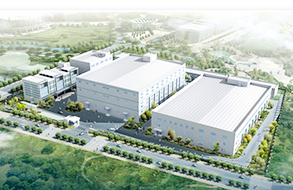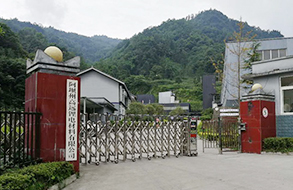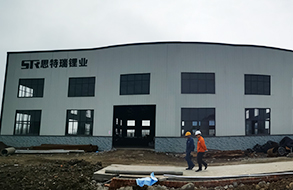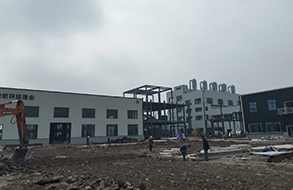Build a modern lithium salts enterprise
----Interview with Chen Siwei
General Manager
Sichuan STR Technology Co., Ltd.
- Set up in August 2016 and with a total registration capital of RMB40 million, Sichuan STR Technology Co., Ltd. is a lithium company with strong and comprehensive technological background. It sticks to development principles of innovation, integrity, cooperation and win-win cooperation. Its Chairman and General Manager Mr. Chen Siwei has been working in the lithium industry for over 20 years since 1993, and thanks to his profound academic knowledge, far-sighted thinking and high prestige in the lithium industry, he has won the company rich management experience and wide business connections.
- Asian Metal: Thanks for taking our interview. Would you please give a brief introduction on your company first?
- Mr. Chen: STR Technology has two wholly-owned subsidiaries, Aba Gaoyuan Li-battery Materials Co., Ltd. ("Gaoyuan Li-battery Material") and Sichuan STR Lithium Co., Ltd. ("STR Lithium"), which are our bases for lithium production and research on production technologies and equipment. Gaoyuan Li-battery Material, located in Wenchuan county, Sichuan province and set up in 2014, was fully acquired by STR Technology in early 2018; in 2015 a 5,000tpa battery grade lithium hydroxide production line was built in the subsidiary and has been in operation since then. As for STR Lithium, it is located in the Deyang-Aba Eco-economy Industrial Park and has an area of 100 Mu (nearly 67,000m2); and it mainly focuses on the process research and production of lithium products such as lithium hydroxide and lithium carbonate.
- Asian Metal: Would you please give an introduction on STR Lithium's new lithium project?
- Mr. Chen: Now we are conducting construction of two lithium projects, the battery grade lithium hydroxide project with a 10,000tpa single-line production capacity and the lithium carbonate fine particle project with an 8,000tpa single-line production capacity. The two projects have been listed by Deyang city government as two of local key industrial projects in 2018 and have got substantial support from local government. The two projects occupy about 52 Mu (nearly 35,000m2) of STR Lithium's total 100 Mu (nearly 67,000m2) area and have a total investment of RMB120 million; they went into construction in May 2018 and so far the construction of the lithium hydroxide production line has been finished and 70 employment opportunities have been provided. By resorting to the mother company's technical patents and research achievements over the past 20 years, we vow to build ourselves into a modern lithium company with advanced processing technologies, high environmental performance and high automation level.
- Asian Metal: How is the construction process going on now?
- Mr. Chen: So far we have finished construction of lithium hydroxide production line and in early March we began equipment commissioning, expecting to see products in late March. As for the lithium carbonate project, its workshop construction is still underway, and we plan to finish civil engineering and equipment installment in late May, conclude the construction process in late June and begin equipment commissioning in July. We plan to finish all construction work for the two projects by the end of 2019 and then go ahead with production capacity ramp-up plans.
- Asian Metal: As demand from the downstream new energy vehicle industry is comparatively weak, market players worry that the 2019 subsidies, which have been cut to some extent, may lead to dropping outputs of high-nickel materials. What are your opinions?
- Mr. Chen: In 2019 the Chinese new energy vehicle industry moves in a slightly slower way. In comparison, in 2018 the market fell into a fever of high-nickel 811 production, but in reality application of the 811 products was not as popular as expected, and the primary issue that all stakeholders pay attention to is still safety. We believe that where the market will go depends on technical developments. At present, NCM 622 has better compatibility with its downstream products and lithium hydroxide has more reasonable prices, which is why producers show high interest in producing this product. Of course, high mileage endurance will still be the development direction on the whole for the car industry.
- Asian Metal: How do you think of lithium prices at present?
- Mr. Chen: I think that prices for lithium products including lithium carbonate and lithium hydroxide would go down slowly. And some Sichuan-based lithium companies with longer history are still able to enjoy comparatively higher profit margins as they entered the market earlier and do well in costs controlling.
- Asian Metal: Now lithium producers are busy with building new production capacities. So what are your competitive advantages?
- Mr. Chen: Our major technicians and talents all used to work in Aba Lithium Factory, one of the three leading lithium plants in China, and we also keep upgrading technologies. So despite that STR Lithium is a new comer in the lithium market, we are confident in our technical advantages and surely can win market shares.
- Asian Metal: What are your major businesses and strategic development directions?
- Mr. Chen: We will follow market trends. When trial production is completed, we will try to cultivate our key clients at first. For the current Chinese lithium industry, the difficulty in preserving lithium hydroxide micro-powder is still a technical obstacle to be surmounted, so we will focus our efforts on finding solutions for this issue in order to enhance our competitiveness.
- Asian Metal: What are your suggestions to new comers in the lithium industry and to companies which have built new capacities but have not put them into operation?
- Mr. Chen: On the whole, lithium industry's downstream new energy vehicle market has witnessed some developments, but there is still a long way to go. At present, purely electric vehicles (PEVs) still have low popularity but demand for plug-in hybrid vehicles is stronger. And lithium producers also need to work closely with their downstream clients. For example, car manufactures hope to increase their mileage endurance and accordingly lithium producers should try to cater to the former's requirements on raw materials.
- Asian Metal: As environmental protection policies in China become increasingly strict, what are the impacts on your company?
- Mr. Chen: Our company runs completely in compliance with government requirement on environmental protection; and moreover, we think that strict environmental policies also facilitate development of the new energy vehicle market to some extent. As Chinese government pays more attention to pollution treatment in urban areas, the lithium industry sees expanding downstream applications in public buses and taxies, and its applications in the car industry should not be treated in an undiscriminating way.
- Asian Metal: Thanks again for taking our interview. Wish your company better and better!






